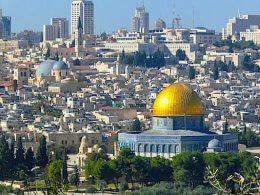There are approximately 25 Christian families left in Raqqa today, according to RIBSS. Raqqa, now the de-facto Syrian headquarters of the Islamic State, fell into rebel control in March 2013 in a battle between insurgents led by the Islamist jihadi group Al Nusra and Bashar Al Assad’s regime. Raqqa then became the first provincial capital under rebel control in the war. “The suffering of Christians began with ISIS control of Raqqa,” RIBSS said on its website about the treatment of Christians under the jihadi militant group. “ISIS looks at Christians as infidels loyal to the West more than their loyalty to their homeland which they live.” In the 1920s, Christians constituted up to 30 percent of Syria’s population and had lived there for 2000 years. Popular belief holds that the apostle Paul converted on the road to Damascus, and a small segment of Christians from the town of Maaloula still speak Aramaic, the language that Jesus spoke. More recently, 10 percent of Syria’s 22 million population were Christians. Two weeks ago, Sec. of State John Kerry formally declared a “genocide” designation regarding the treatment of Christians and other minorities in Iraq and Syria, after an extensive push with bills in both the House of Representatives and Senate. Only days before, Congress voted unanimously to make the designation. Since the beginning of the Syrian civil war, thousands of Christians and other minorities have been forced from their homes both by Islamist rebels fighting Bashar Al Assad’s regime and Islamic State militants. In areas controlled by ISIS, Christians have been given three options—to convert to Islam, to pay a minority tax or jizya or to face death. The Foreign Desk exclusively reported on the kidnapping of hundreds of Christians in the Syrian province of Hassakeh in February 2015. In 2014, ISIS published a list of seven restrictions that Christians in Raqqa had to follow in order to live under Caliphate rule. In it, Christians were contractually obliged to pay the jizya, or minority tax, which in Islamic Sharia law is the amount of money paid by non-Muslims or “dhimmis” in exchange for protection. The jizya was last enforced under the Ottoman Empire and since, only brought back by the Islamic State. In addition, Christians living under ISIS are not permitted to build any new churches, religious facilities, nor are they allowed to repair existing ones, cannot publicly show any crosses, pray or recite the Bible in public, are prohibited from any acts of aggression against the Islamic State, are forbidden from stopping the conversion of any Christian to the religion of Islam and cannot sell pork products or alcohol to any Muslims nor consume these products, forbidden in Islam, in public.#ISIS Issued a new decision to Prevent any Christians or Armenians people who Remain in #Raqqa to leave the city under any condition #Syria
— الرقة تذبح بصمت (@Raqqa_SL) March 29, 2016
ISIS forbids remaining Christians from leaving Raqqa
The Islamic State is now preventing the last remaining Christians from leaving Raqqa, Syria, according to activists on the ground.
According to the group Raqqa Is Being Silently Slaughtered, which was founded by a group of journalists turned activists, ISIS has put out a new decree preventing both Christians and Armenians in Raqqa from leaving.









